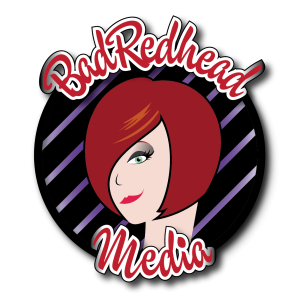How To Focus On Writing Right Now
Having trouble focusing on writing lately? Join the club. Our news cycle has been full of drama since before the last election and shows no sign of stopping anytime soon. Writers often draw inspiration from current events for their work, so having the internet and decent WiFi is crucial, however, it can also be a huge, shiny distraction.
Some writers call it research – legit. Some call it support – also valid. How about when it becomes anxiety-provoking, whining, venting, analysis-paralysis procrastination (which many writers are experiencing right now)? Legit and valid in small doses, yet also an easy, time-sucking trap that prevents us from getting any writing done at all, whether that’s blogging, working on our books, or focusing on any book marketing and author platform work (e.g., newsletters, writing and scheduling posts and tweets, etc).
Many writers are politically active and outspoken about issues, which is great. What’s not so great is when we watch our writing deadlines whoosh by. Remember, you are in control here.
Here Are Eight Ways You Can Focus on Writing Right Now!
- 1Set Aside Dedicated Writing Time
I’ve written before how it’s not time that’s the issue for most writers; it’s focus. Many writers say they don’t have time to blog or market their work because of family, jobs, you know…life. And I get it. I do. I’m a single mom of two teenagers (are you praying for me yet?), and the sole breadwinner here. I’m also an entrepreneur, author, daughter, sister, lover, sexual abuse survivor and activist with migraines, anxiety, depression, etc…I could go on. Life is hard to manage for everyone in some way or another.
The difficulty for many writers when they do sit down to write is one of two issues:
–distractions (social media, phone, internet, family, job)or–lack of focus (what am I going to write about).
Find a time or method that works for you, whether that’s ten minutes three times a day, or one hour a few days per week, or catching a half-hour here and there — schedule in your writing time and stick to your plan. Writing is like your pet: it does not care how busy you are. It simply wants your attention.
You either make writing a priority or you don’t. If you want to be a writer, write.
- 2Turn Off ALL Distractions While Writing
This includes social media, your phone, email, and internet. Shut your door. Put in your headphones if you’re in a busy, crowded place (whether you play music or not is up to you). Do whatever it takes to be less available to others and only available to your writing. Have your partner or a babysitter or friend watch your kid(s) if they’re young (or write when they nap — I’m talking 10 or 15 minutes — then go shower and collapse exhausted into bed. I remember those days well. Laundry can wait.)
For example, I write my blog post outline throughout the week and then fill it in on Saturdays, publish on Sundays, and share for #MondayBlogs. I shut my office door, turn off my phone, close all my social media tabs, and make this blog my priority. I even trick myself into not hearing any small knocks or phone messages come through by putting on my noise-canceling headphones and playing instrumental soundscores by Thomas Newman or 70’s rock – good writing music.
If you follow my advice in The BadRedhead Media 30-Day Book Marketing Challenge about scheduling in some (not all) your tweets and posts, social media can work for you while you’re writing and attending to work and life anyway. Making time to write need never take time away from book marketing or your author platform.
Book marketing and writing work together, not against, one another.
- 3Be Less Available
“No.” is a complete sentence. If you have writing deadlines (your WIP, guest articles, your own blog, participating in a chat or a presentation – whatever), make writing your priority. Not arguing politics on Facebook. Not dealing with trolls on Twitter. Not always being the one who brings the cookies to the meeting.
Saying no to anything that distracts from these writing goals — unless of course, it’s an agent or publisher wanting to meet with you, etc — is smart business. And if you’re not looking at writing as a business, think again.
As Leigh Shulman says: “When you set your writing up as a business you can absolutely make a living writing. You just need a plan. Running your writing as a business helps you make your plan.” Learn more about Leigh and her upcoming book, The Writer’s Roadmap, here.
- 4Know Your Keywords/Key Phrases
As I discuss in my articles on branding, by branding you and not your book and focusing on the keywords or phrases that you are passionate about, you will always know what to focus on when blogging or writing/sharing tweets or posts. Keep your keywords and keyphrases handy if you don’t know them offhand.
For example, as BadRedhead Media, my keywords are: social media, writing, book marketing, author branding, book promotion. I know this because it’s what I do for a living, it’s what I am passionate about, and it’s also what I’ve dedicated my professional life to.
Which isn’t to say I won’t share photos of my cats or something else outside of my general author branding. Yet, I have this foundation set so that people who follow me know they can count on information on these topics. Branding is basically about setting expectations. What do you want your reader to know? Write about that.
- 5All Writing ‘Counts’
Sometimes we are not in the headspace to work on our WIP, for whatever reason and that’s okay. It really is. Even the shitty crap we write is good. No, I’m not crazy. Because you are writing. So, yay you!
Let go of the perfection monster. As Julia Cameron says in The Right To Write: Wherever you are is always the right place. There is never a need to fix anything, to hitch up the bootstraps of the soul and start at some higher place. Start right where you are. There is something very right about simply letting yourself write. And the way to do that is to begin, to begin where you are.
I love that. Don’t aim for perfect writing. Aim for writing, whether it’s:
- your work in progress,
- a poem,
- a random short story idea,
- a blog post,
- your posts or tweets for the week (some people argue Twitter has ruined writers yet I argue it’s made us more succinct – that’s a whole other post, though),
- your journal,
- letters to a friend,
- letters from your characters to each other (people love this idea – it is a great way to get to know your characters),
- or, if you write nonfiction as I do, write a letter to someone in your past as I did in Broken Pieces,
- your monthly newsletter
I could go on. There is always some kind of writing you can do. You don’t have to make it perfect; you just have to do it. Then go back and revise later to make it pretty.
- 6Read More
Stephen King said it best: If you want to be a writer, you must do two things above all others: read a lot and write a lot. (On Writing, awesome book). When I share this quote, I get a lot of pushback from writers: who has time to read? I’m too busy writing, marketing, learning, living. Which is great, of course.
Yet, come on. Reading is research. Who are your favorite authors? Why are they your favorites? What makes them amazing? What books have made a difference in your life? Go back as a writer and reread them with a different eye: what about the stories moves you? Is it the plot, the characters, the writing itself?
There’s also the Malcolm Gladwell’s 10,000 hours concept to success laid out in Outliers:
There is a lot of confusion about the 10,000 rule that I talk about in Outliers. It doesn’t apply to sports. And practice isn’t a SUFFICIENT condition for success. I could play chess for 100 years and I’ll never be a grandmaster. The point is simply that natural ability requires a huge investment of time in order to be made manifest. Unfortunately, sometimes complex ideas get oversimplified in translation.
Reading other writers is also a great motivator. I find so much inspiration from reading beautiful, lyrical words, don’t you? It makes me want to get back to my own work.
- 7Feed Your Brain with Creativity
Art, music, adult coloring books, complicated dot-to-dots, puzzles, games, doodling, knitting or crochet, sewing (barf), cooking (you may have heard my smoke alarm going off more than once), dancing, movies, theater…whatever it takes to fill your noggin full to the brim with inspiration, ideas, beauty, sadness, emotion, life — do it.
When was the last time you watched a movie from beginning to end without checking your phone? We are so connected to our electronics now, aren’t we? I find myself frustrated by it, even as I’m doing it subconsciously. A year or so ago, I happened to watch a Simon Pegg movie, Hector and the Search for Happiness (based on the book by Francois Lelord) and became so completely engrossed, I rewatched it and took notes. I also bought the book. I love this line in particular:

If you’re stuck in a routine, do something different. If all you do is argue about politics with people on social media and that is bringing you down to the point that it’s preventing you from writing because that is what you are feeding your brain, feed it something else.
- 8Music
As I mentioned above in feeding your brain, music can be particularly helpful in accessing and lighting up that creative part of our brain. In fact, playing one song on repeat can be incredibly useful for focus and productivity.
Musicologist and cognitive psychologist Elizabeth Hellmuth Margulis in her landmark book, On Repeat: How Music Plays the Mind explains why “listening to music on repeat improves focus. When you’re listening to a song on repeat, you tend to dissolve into the song, which blocks out mind wandering.” (Source: Inc.com)
I’ve always done that with artists like Lana Del Rey, Tori Amos, Madonna, or Poe, or with soundscores, particularly Thomas Newman – on particular songs that stick with me for a certain mood. I imagine you have as well with some of your favorite artists. In the linked article above from Inc.com, Benjamin Hardy provides a link to Listen On Repeat, where you can enter virtually any artist or genre and it will automatically put the song on repeat for you (so you don’t have to fuss with your devices — remember, no distractions!).
Writing Flow
Writing is a creative pursuit that takes skill, dedication, and work. All of these suggestions not only help you get out of your own way but also give you permission to get into the psychological state of flow (immersed in the moment, utterly absorbed in the present activity).
According to positive psychologist Mihály Csíkszentmihályi, the mental state of flow is “being completely involved in an activity for its own sake. The ego falls away. Time flies. Every action, movement, and thought follows inevitably from the previous one, like playing jazz. Your whole being is involved, and you’re using your skills to the utmost.”
So when you’re done with this post, go write something awesome!
Books mentioned in this post:
Broken Pieces by Rachel Thompson
The BadRedhead Media 30-Day Book Marketing Challenge by Rachel Thompson
The Right To Write by Julia Cameron
The Writer’s Roadmap by Leigh Shulman
On Writing by Stephen King
Outliers by Malcolm Gladwell
On Repeat: How Music Plays the Mind by Elizabeth Hellmuth Margulis
Hector and The Search For Happiness by Francois LeLord





“No” is a complete sentence. It’s also brevity at its best. But it’s also very hard to say sometimes. Especially when the question comes from us. Saying “No” to ourselves is the hardest of all. And that’s where the distractions can make it so hard to write sometimes.
On the other hand, I find that I am on a roll, when I am “in flow”, I don’t even hear the question – so “No” is not even needed.
[…] are forever searching for more productivity. Rachel Thompson tells us how to focus on writing right now, Rachelle Gardner urges us to find a time to write, and Zoe M. McCarthy advises finding worthy […]
I completely forgot I own a copy of Stephen King’s On Writing. It was such a great read in high school. I have a hard time focusing as social media is one of my greatest distractions. Your article has a lot of really wonderful tips. I need to buy a pair of noise canceling headphones just for the sound around me as I am trying to write and research for my podcast!
I agree, David. Saying no can be pretty tough, but it’s also a very necessary and healthy thing to do.
Great Write-up on how to focus on/ improve ones focus on writing. I know that social media and our smartphones have really made it difficult to focus on writing. But one needs to discipline oneself in that regards. And yes, I agree with you on the reading part. You need to read a lot to improve your writing skills and also gain some ideas on what to write. By the way, the folks at “eFor-real” have made it easy to source writing ideas.
I like #5 All writing counts. I get so stuck in my head trying to make my posts perfect. When you say, “Don’t aim for perfect writing. Aim for writing,” this makes since. I can get a lot more posts done if I just stick to this. Thank you Rachel.